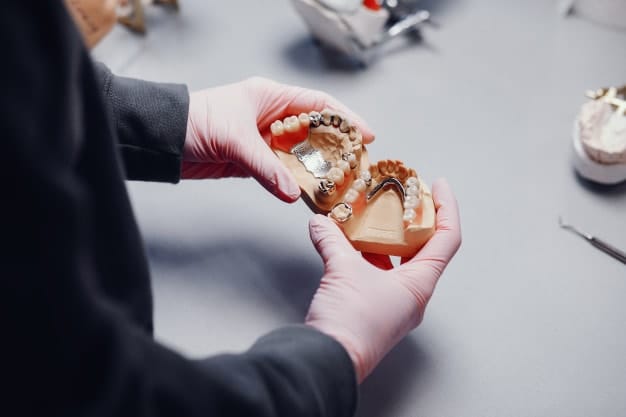A dental crown is a tooth-shaped cap that is used to restore the shape and size of a tooth as well as provide strength while improving its appearance. When a crown is cemented in place, it fully encases the entire visible portion of a tooth that lies at and above the gum line.
Why is a dental crown needed?
- To protect a weak tooth from breaking or to hold together parts of a cracked tooth
- To restore an already broken tooth or a severely worn down tooth
- To cover and support a tooth with a large filling when there is very little tooth structure left
- To hold a dental bridge in place
- To cover misshaped or severely discoloured teeth
- To make a cosmetic modification
What types of crowns are available?
Ceramic crowns
Ceramic crowns are made of a high strength dental ceramic and are predominately used to restore front teeth. They offer excellent aesthetics and can match the colour of your natural teeth. They are the most common option when restoring front teeth because of their natural look. Despite not being as strong as metal crowns, ceramic crowns are still a great option for front teeth where chewing forces are not very prominent. They are shiny and glossy and will match the characteristics of the adjacent teeth – you will not be able to see a difference!
Porcelain-fused-to-metal crowns
These crowns are made from ceramic bonded onto metal copings. They combine good appearance and strength, making them suitable for the restoration of back teeth, where chewing forces are greater. Porcelain-fused-to-metal crowns act as a strong seal to prevent leakage and reduce tooth decay while providing durability and long-term wear. They can be colour-matched which is perfect for the restoration of front teeth where a natural look needs to be achieved.
Metal crowns
Metal crowns are usually made from gold alloys and are used for the restoration of back teeth. They offer superb strength and their wear rate is close to that of natural teeth. Metal crowns are the most resistant to wear and breakage and do not harm the natural tooth or the gum tissue. They are a suitable option when aesthetics are not of paramount importance. Their only disadvantage is their colour, but other than that, they are long-lasting, healthy, easy to work with and extremely durable.



